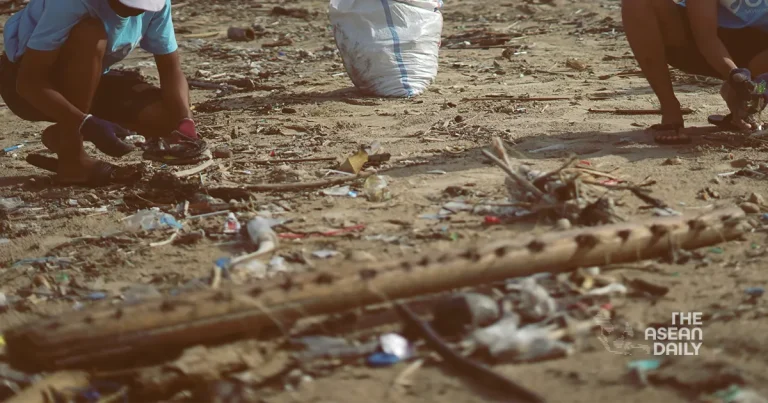3-7-2024 (MANILA) In a coastal town renowned for its vibrant corals and marine biodiversity, an innovative initiative is taking root, offering a unique solution to the mounting problem of plastic pollution. Green campaigners in Mabini, a diving resort in the Philippine province of Batangas, have devised an ingenious swap: a bag of rice for every sack of trash gathered by local residents.
The initiative, which has been in operation for nearly two years, is driven by a growing concern over the detrimental impact of plastic waste on marine life. Giulio Endaya, a volunteer at the forefront of the movement, emphasizes the urgency of addressing this issue, citing the alarming trend of sea turtles and fish ingesting plastic straws, bags, and microplastics that have broken down along the shores.
Since its inception, the rice-for-trash program has yielded remarkable results, collecting an impressive 4.3 metric tons of plastic waste. In exchange, a staggering 2.6 tons of rice have been distributed to participating households, providing much-needed relief to low-income families grappling with the soaring costs of this staple food in recent years.
The program’s success lies in its simple yet effective approach. Residents are encouraged to gather and sort plastic waste, which is then exchanged for bags of rice weighing 1kg each – a quantity sufficient to meet the daily needs of a small family.
The initiative’s impact extends beyond environmental conservation, as it also addresses food insecurity and economic challenges faced by the local community. For 46-year-old resident Janeth Acevedo, the program has been a lifeline, significantly reducing her monthly rice expenditure. “In a month, I need four-and-a-half sacks of rice, but now all I have to buy is two sacks, which is a big help,” she remarks as she meticulously sorts through the trash she has collected.
The program’s funding comes from private donors and small companies, reflecting a collective commitment to sustainable practices and community empowerment. This grassroots effort not only raises awareness about the detrimental effects of plastic pollution but also fosters a sense of environmental stewardship among locals.
Alarmingly, the Philippines has been identified as the world’s largest contributor to plastic waste in the ocean, accounting for a staggering 36 percent of the global total, according to a recent report by the Our World in Data project at the University of Oxford. Initiatives like the rice-for-trash program are crucial in mitigating this crisis and inspiring behavioral change within communities.




